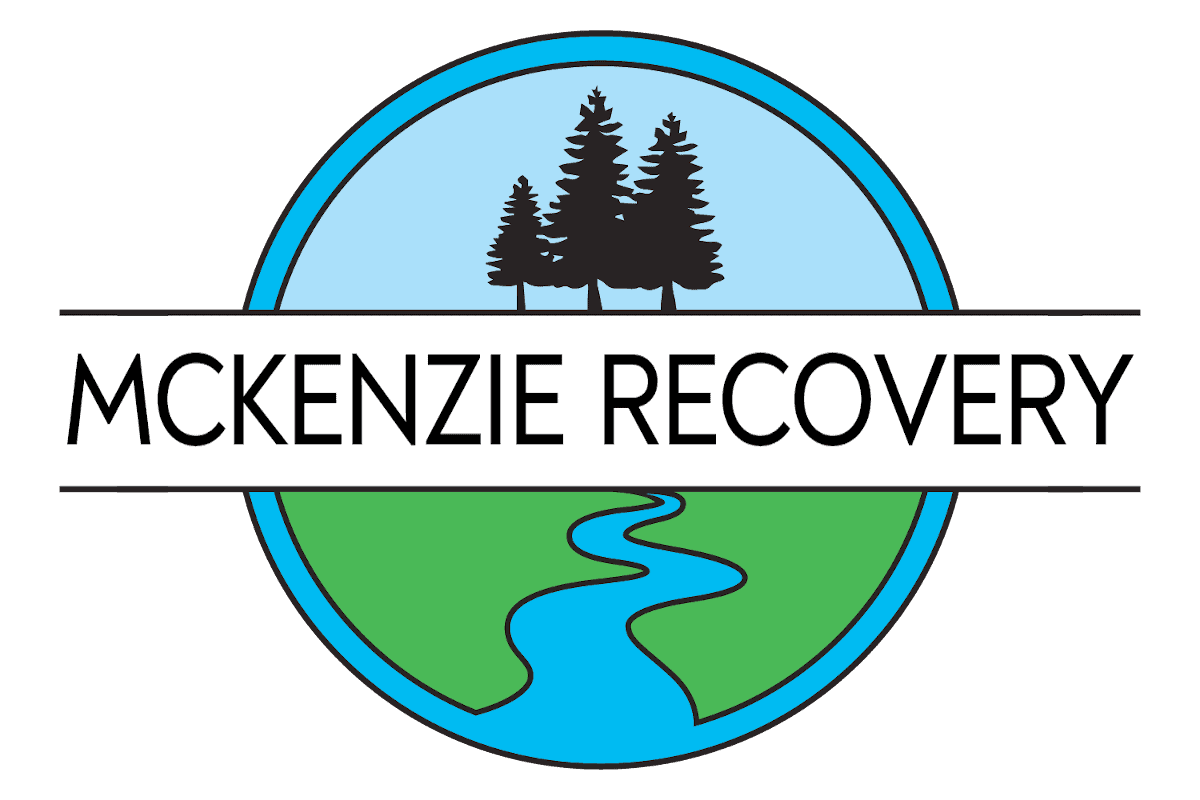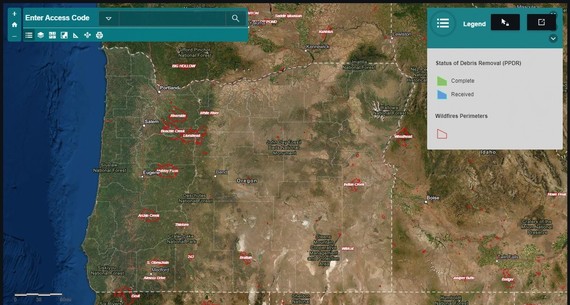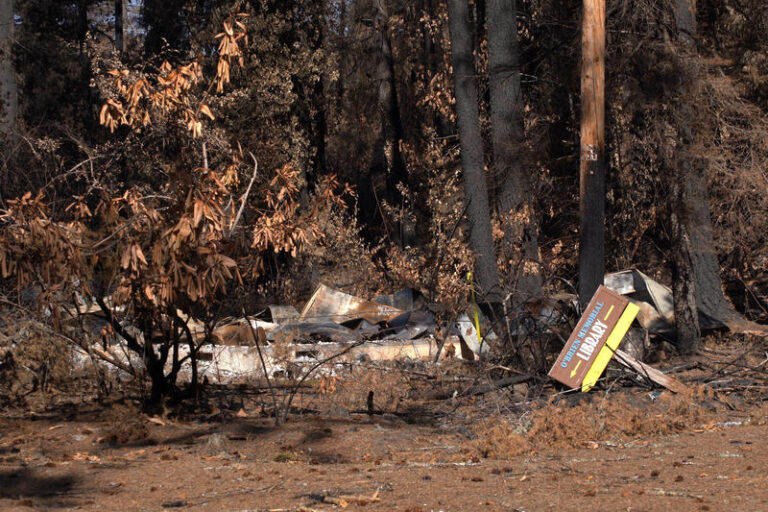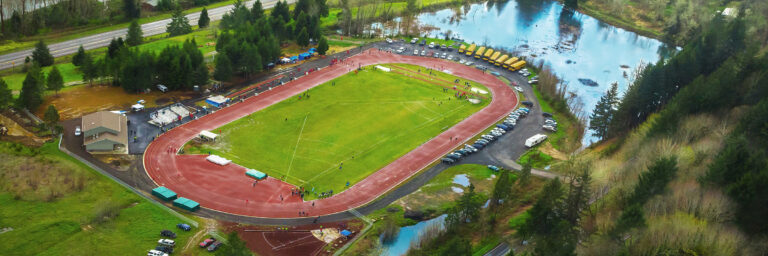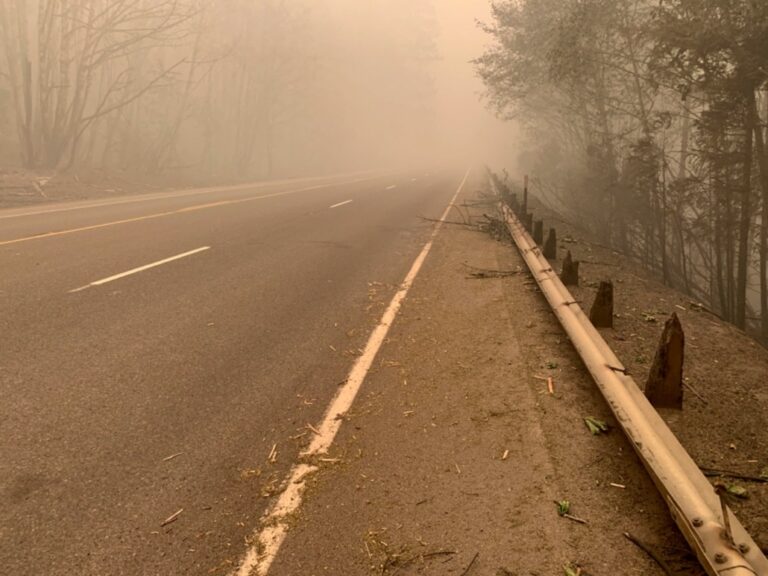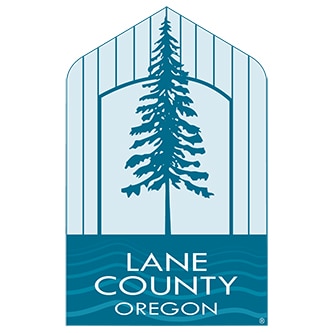Dozens Of Volunteers Help Clean Up Blue River Through The Weekend
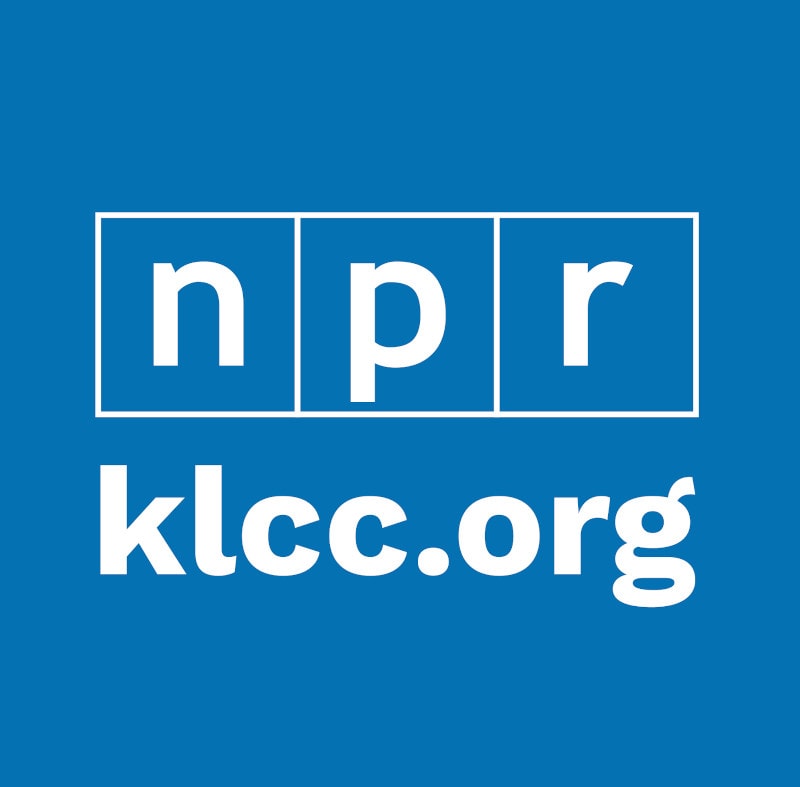
Source: KLCC.org
By Brian Bull
The last five and a half months have been a struggle for residents of the McKenzie River Corridor. After the Holiday Farm Fire ravaged the area, winter brought floods, mudslides, and collapsing trees. But this weekend, three organizations converged on the town of Blue River, to give a helping hand.
Meyers General Store and Liquor Shop was more than a place to grab bread, locally-grown kale, or a six-pack. Owner Melanie Stanley says it was a hub for the Blue River community.
“It became like a town hall, when we didn’t have a town hall. It was the place where everybody knew they could come and they were safe, and everybody felt welcome here.”
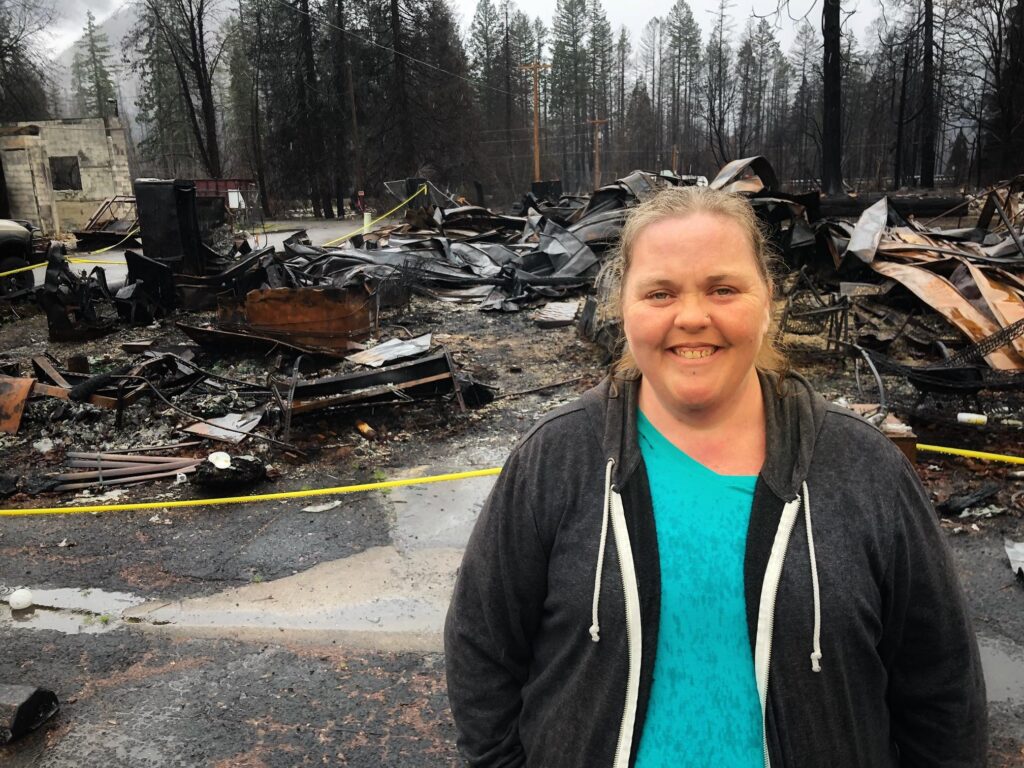
Credit Brian Bull / KLCC
On Labor Day, a wildfire erupted and consumed 173,000 acres, including most of Blue River. Now the general store is a mound of warped metal and charred concrete.
The loss cuts deep for Stanley.
“A year ago, standing here…you would’ve seen the front façade of my building,” she recalls, pointing to the remnants.
“A beautiful bench with two eagles, on both ends, that everybody sat on. And people out front. Because everybody just gathered here. Didn’t matter what time of day, didn’t matter any of that stuff. But now, it’s not that…”
Like many Blue River residents, Stanley’s not lying down and feeling sorry for herself. She’s meeting with representatives and volunteers from several groups that came to help clean-up.
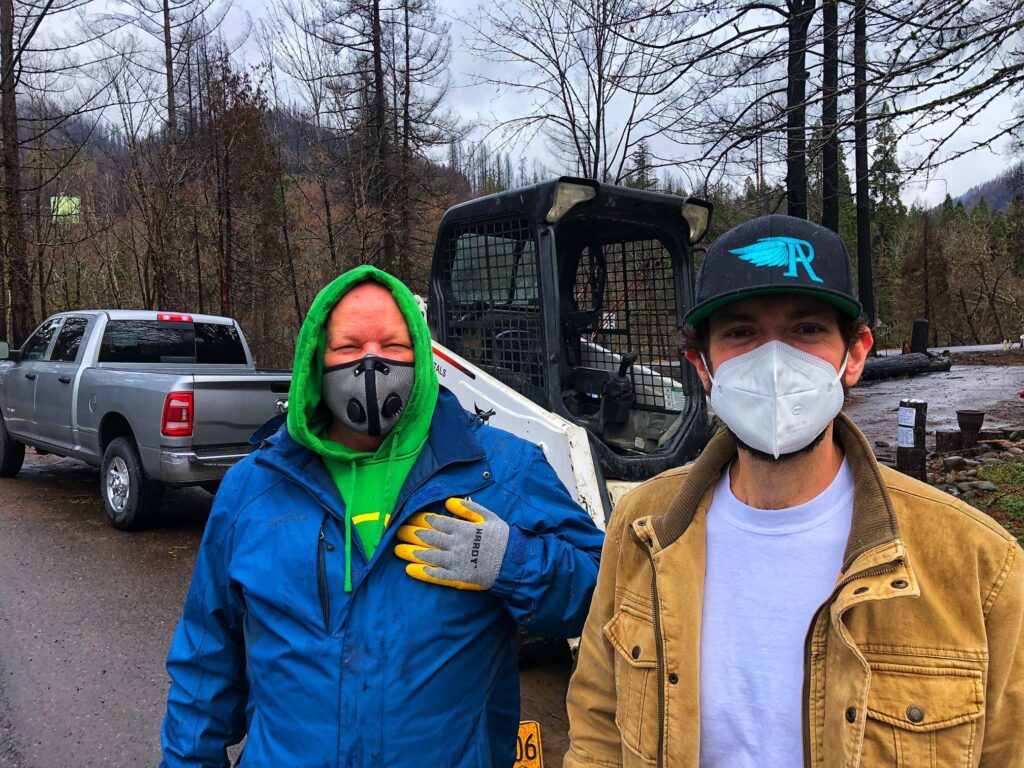
Credit Brian Bull / KLCC
A pristine, blue-topped tent sticks out amongst the ruins that used to be the downtown. Here, volunteers are hurriedly assembling wheelbarrows for collecting debris.
Paul Theisen is a volunteer with LoveFirst, a grassroots non-profit based in Springfield.
“We’re putting things together, getting it organized so that we can get to the task of hand cleanup of each foundation areas, to look for things that owners may need or want,” Theisen explains.
“It’s horrible seeing what people have gone through, but I also see a lot of wonderful people coming together to help out.”
LoveFirst secretary Adam Burner says they’ve worked since September to alleviate the burdens of Holiday Farm Fire survivors.
“Clothing, food, we have temporary shelter that we can provide,” explains Burner. “If they need a camper or a trailer, we can hook them up with resources. If they have a bill that needs to be paid, some of these other needs.
“But there’s definitely work to be done, in long-term. And that’s why we’re here.”
Another organization is Reach Out Worldwide, founded by the late actor Paul Walker, of the “Fast and Furious” franchise. His brother, Cody Walker, is CEO of the group. He says with 50 volunteers, they’ll clean about 10 lots in Blue River, and save owners some hefty recovery costs.
“We estimate about $30,000 to $35,000 per lot. So you’re looking at $300 grand, $350,000.”
Walker says the effort is especially productive with volunteers and assistants from across the state.
“We’ve got Oregonians coming in from the coast,” he continues, as more volunteers arrive in town. “We couldn’t do it without the local community supporting us and helping us to identify different homeowners and different lots that we can clear to make the most of our time here.
“It’s really cool to see people coming together.”
The third group, Cascade Relief, is handling logistics. This includes working with state and federal agencies on the transport and disposal of waste materials like ash and asbestos.
Cascade Relief Team President Marc Brooks tracks their progress on a laptop under the blue tent, while a generator roars nearby. He works with Reach Out Worldwide in getting people back on their property.
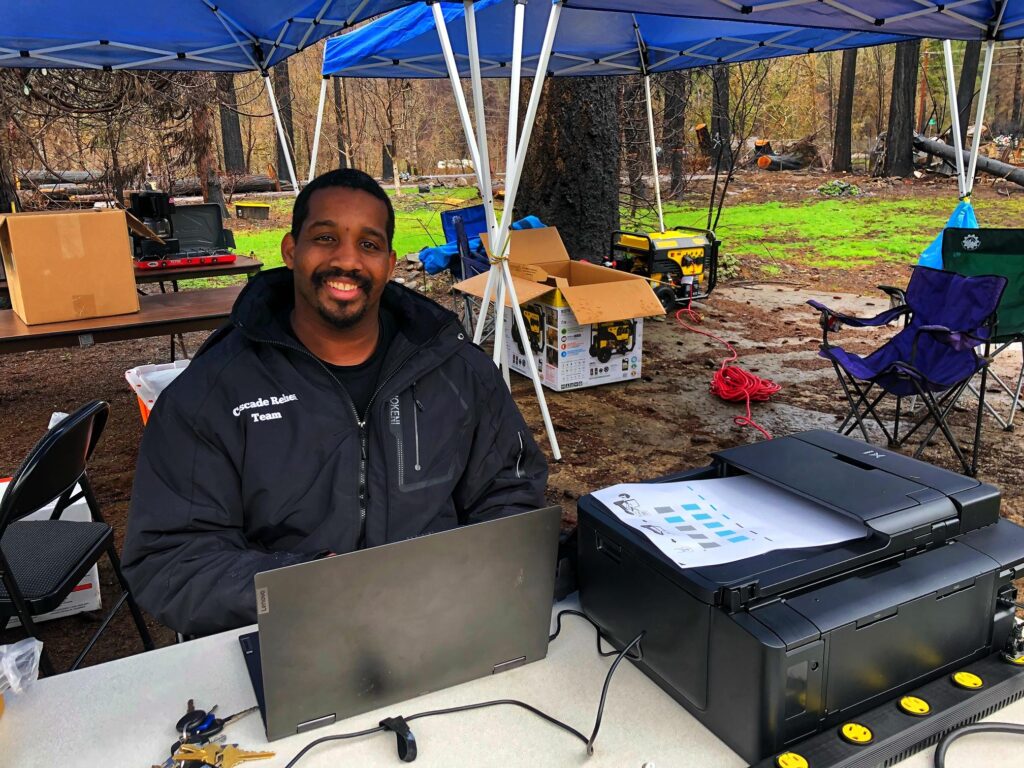
Credit Brian Bull / KLCC
“It’s amazing how people say, ‘It’s good to be home,’ even though that structure may be missing, the property is still something in that area, being part of that community is still something they consider being home, so it’s amazing.”
Part of reclaiming a sense of place is pushing on, says Melanie Stanley. Like other wildfire survivors around Blue River, she’s helping the cleanup effort to facilitate the town’s recovery.
Pausing for a cigarette break, she looks over where her store used to stand. If all goes well, she figures it’ll be rebuilt in a year.
“I don’t want it to look like every other convenience store,” Stanley asserts. “I want it to feel the same way that it felt to walk into it before. Homey, and have character, and like you’re walking into the place that you’ve always known.”
A familiarity that sounds as close to home as it gets.
Copyright 2021, KLCC.
